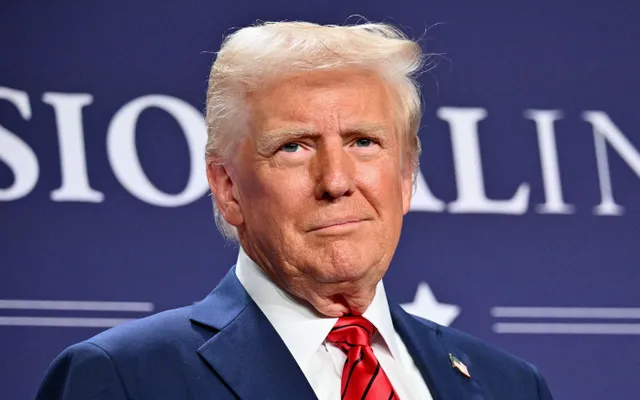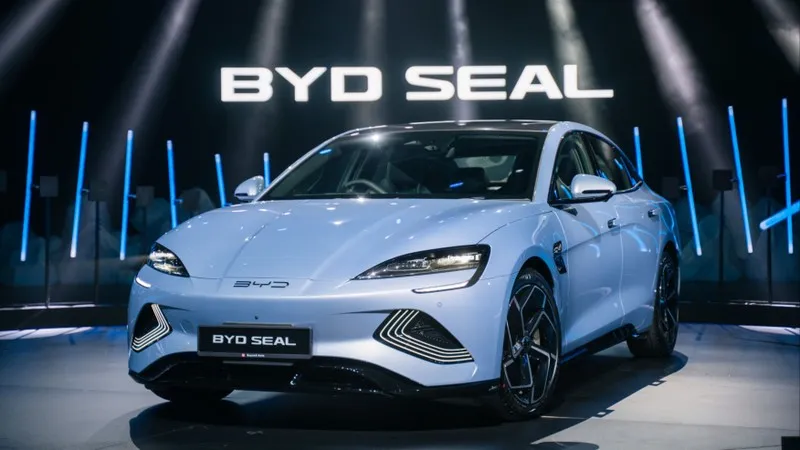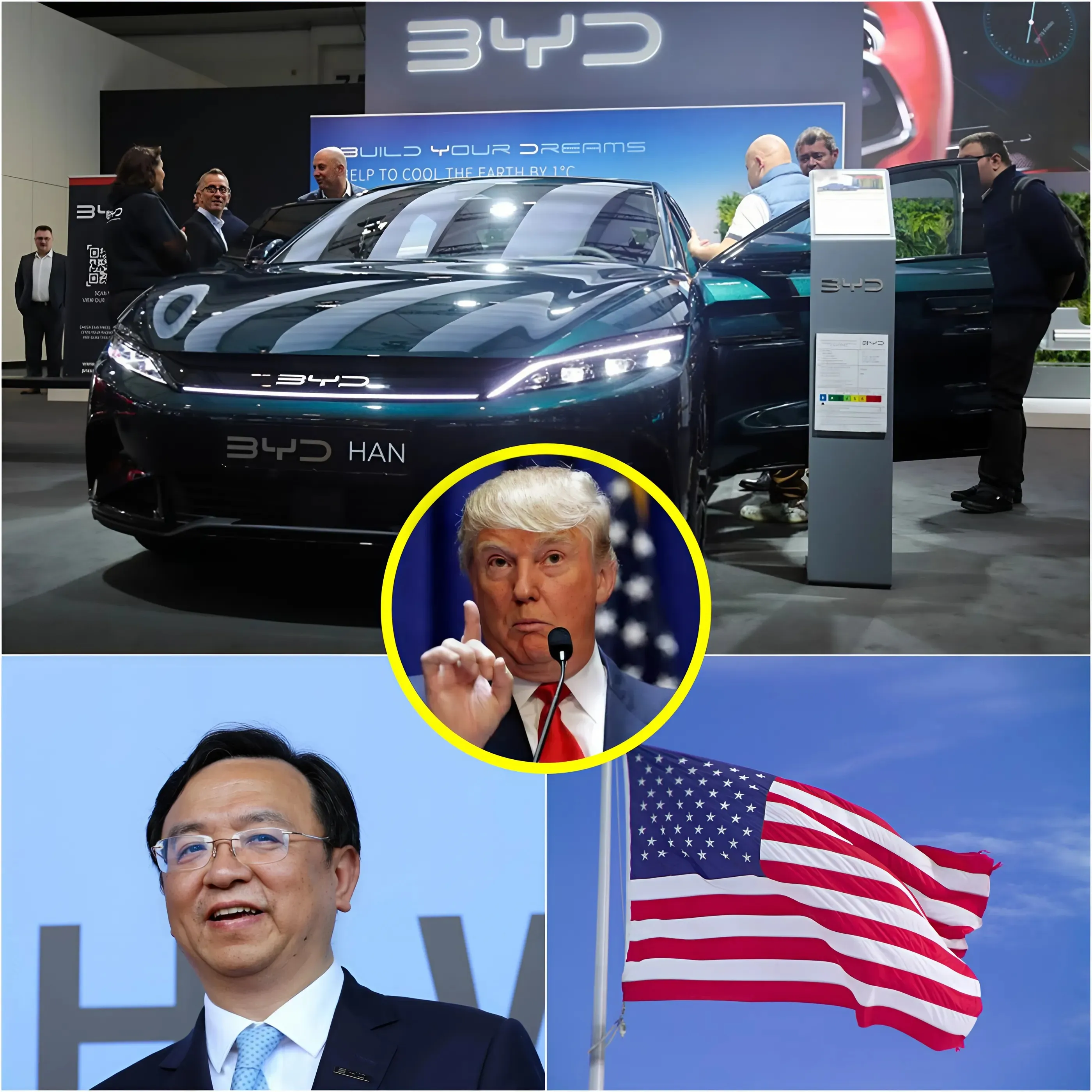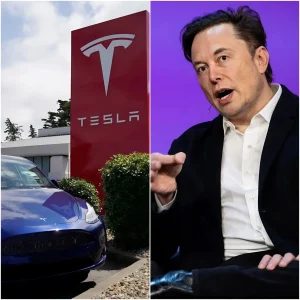The world’s largest electric vehicle giant, BYD, has its dreams crushed in the U.S., a heavy blow dealt by President Donald Trump.
Chinese electric vehicle giant BYD, the world’s largest EV manufacturer, has faced a major setback in its expansion into the U.S. market, following a series of restrictive policies implemented by President Donald Trump. The move marks a significant roadblock for the company’s ambitions in the West and could have lasting implications on the global EV industry.

BYD, which has long been dominant in China and expanding across Europe and South America, had set its sights on establishing a stronghold in the United States. However, the Trump administration’s aggressive stance on Chinese companies, particularly in the tech and automotive sectors, has effectively barred the company from making any meaningful progress in the country. A new round of tariffs and regulatory measures has made it nearly impossible for BYD to compete in the U.S. market, forcing the company to reconsider its strategy.
The biggest blow came with the introduction of a 100% tariff on Chinese-manufactured electric vehicles, a move Trump has justified as necessary to protect American automakers and secure domestic jobs. While this policy aligns with his long-standing “America First” economic approach, it directly undermines BYD’s ability to offer its affordable and technologically advanced EVs to U.S. consumers. Industry experts argue that such measures could delay the adoption of electric vehicles in the country, as BYD’s presence would have introduced more competition, driving down prices and accelerating innovation.
In addition to tariffs, Trump has reinforced scrutiny on Chinese investments in critical industries, particularly those involving advanced technology and infrastructure. The administration has highlighted national security concerns over Chinese companies operating within the U.S., further complicating BYD’s efforts to set up manufacturing plants or form partnerships with American firms. This protectionist approach is seen as a continuation of the trade war initiated during Trump’s first term in office, which saw numerous Chinese firms being forced out of key markets in the United States.
Despite this setback, BYD remains a dominant force in the global EV landscape. The company has continued to expand in Europe, recently launching new models tailored for Western markets and strengthening its presence in Latin America. Furthermore, BYD is pushing forward with its battery technology, solidifying its position as a leading supplier for other EV brands worldwide. However, the inability to penetrate the U.S. market remains a significant obstacle to its goal of global dominance.
Meanwhile, U.S. automakers such as Tesla, Ford, and General Motors are expected to benefit from the absence of BYD, allowing them to maintain control over the American EV market without direct competition from one of the most cost-effective and technologically advanced EV manufacturers in the world. While Trump’s policies may protect domestic companies in the short term, critics argue that restricting competition could stifle innovation and slow down the transition to electric mobility in the United States.
With no signs of a policy shift under Trump’s administration, BYD’s ambitions in the U.S. may remain unrealized for the foreseeable future. The EV giant must now look toward alternative strategies, focusing on strengthening its foothold in other global markets while waiting for a potential shift in U.S. policy that could one day open the door to its long-coveted American expansion.





 La Red Bull INVIA UNA DICHIARAZIONE INASPETTATA A LIAM LAWSON SUL SUO FUTURO IN F1!
La Red Bull INVIA UNA DICHIARAZIONE INASPETTATA A LIAM LAWSON SUL SUO FUTURO IN F1!
